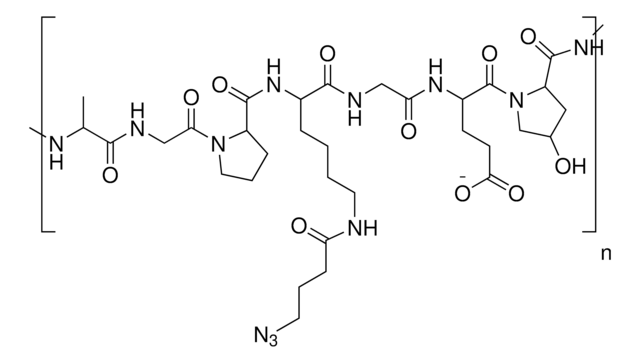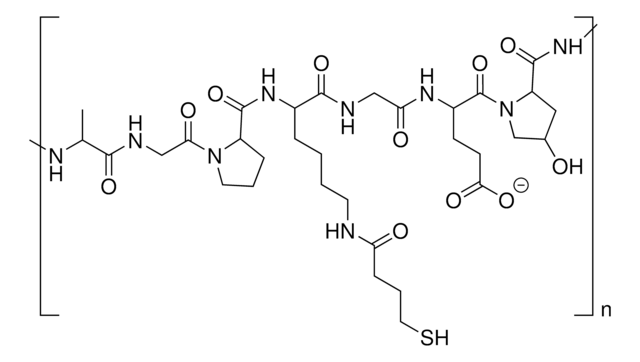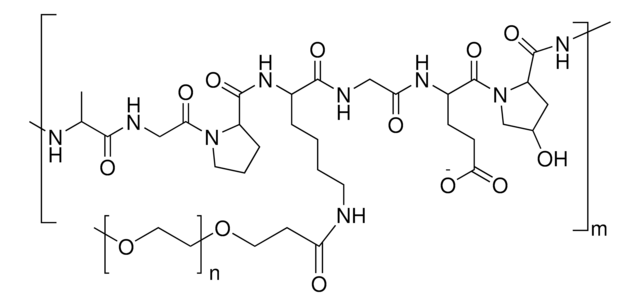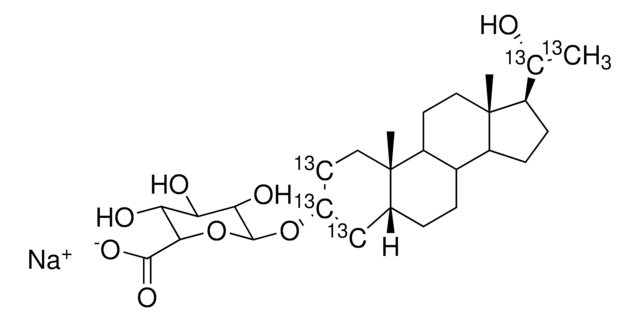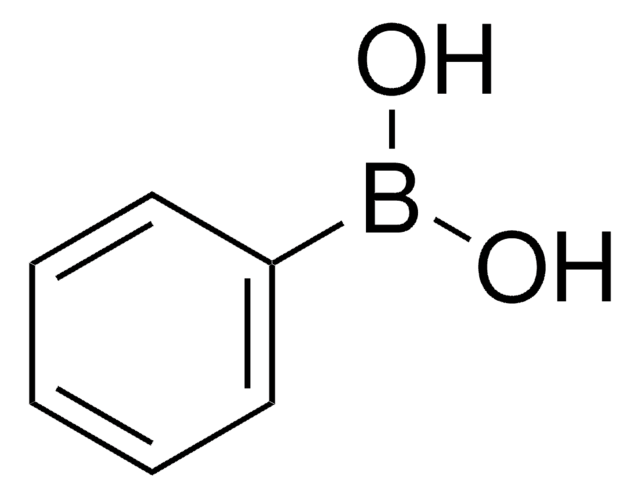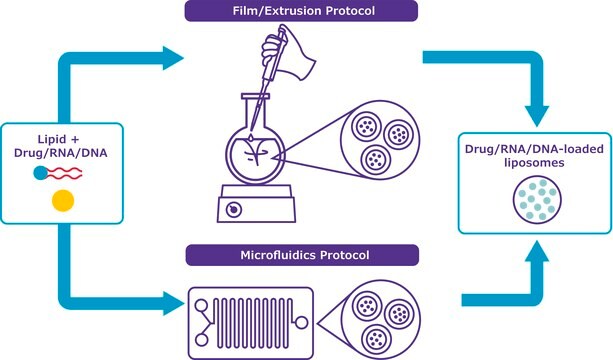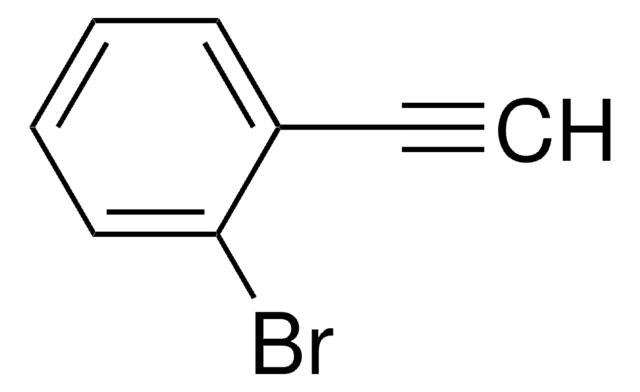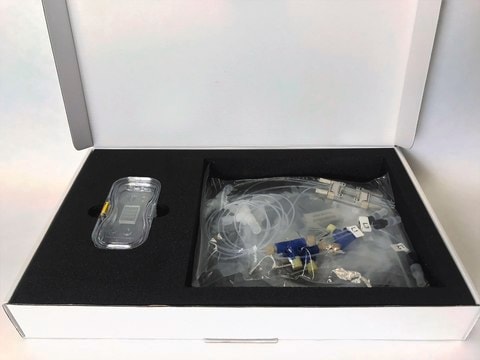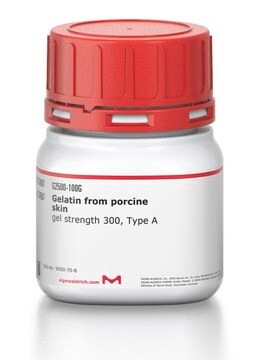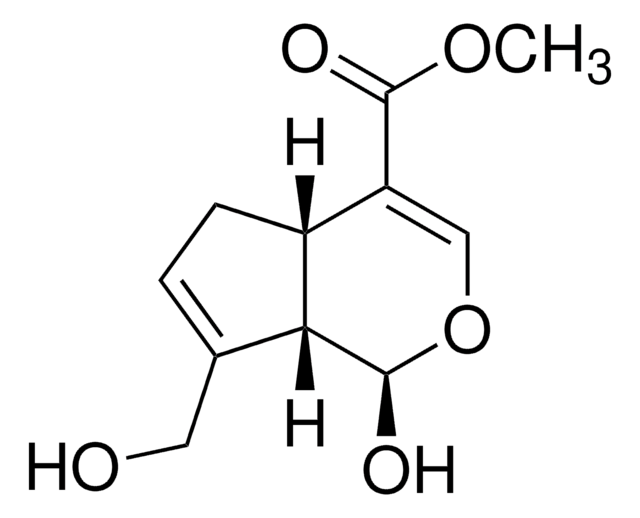909157
Alkyne functionalized gelatin
degree of substitution > 80%
Synonym(s):
Alkyne-functionalized gelatin, Clickable gelatin
Sign Into View Organizational & Contract Pricing
All Photos(1)
About This Item
UNSPSC Code:
43211915
NACRES:
NA.23
Recommended Products
description
Degree of substitution: >80% by TNBS method
NMR: Conforms to structure
form
powder
color
white to pale yellow
storage temp.
2-8°C
Related Categories
General description
Due to its biodegradablity and biocompatibility, gelatin is routinely used in hydrogels for biomedical applications such as drug delivery, tissue engineering, and 3D bioprinting. Gelatin-based hydrogels are synthesized by the crosslinking of functionalized gelatins. Depending on the identity of the functional groups, several different processes can be used to synthesize crosslinked gelatin hydrogels, including radical-based (either thermal or photochemical) and click chemistry methods. Alkyne-functionalized gelatin can be used in the synthesis of hydrogel using click chemistry with either azide or thiol substrates.
Storage Class
11 - Combustible Solids
wgk_germany
WGK 3
flash_point_f
Not applicable
flash_point_c
Not applicable
Choose from one of the most recent versions:
Certificates of Analysis (COA)
Lot/Batch Number
Sorry, we don't have COAs for this product available online at this time.
If you need assistance, please contact Customer Support.
Already Own This Product?
Find documentation for the products that you have recently purchased in the Document Library.
Thiol-yne ′click′/coupling chemistry and recent applications in polymer and materials synthesis and modification.
Lowe AB, et al.
Polymer, 55, 5517-5549 (2014)
Synthesis, properties, and biomedical applications of gelatin methacryloyl (GelMA) hydrogels.
Yue K, et al.
Biomaterials, 73, 254-271 (2015)
Vinh X Truong et al.
Biomacromolecules, 16(7), 2246-2253 (2015-06-10)
In this study, we present a method for the fabrication of in situ forming gelatin and poly(ethylene glycol)-based hydrogels utilizing bioorthogonal, strain-promoted alkyne-azide cycloaddition as the cross-linking reaction. By incorporating nitrobenzyl moieties within the network structure, these hydrogels can be
Gelatin hydrogels via thiol-ene chemistry.
Russo L, et al.
Monatshefte fur Chemie / Chemical Monthly, 147, 587-592 (2016)
Sandeep T Koshy et al.
Advanced healthcare materials, 5(5), 541-547 (2016-01-26)
Injectable gelatin hydrogels formed with bioorthogonal click chemistry (ClickGel) are cell-responsive ECM mimics for in vitro and in vivo biomaterials applications. Gelatin polymers with pendant norbornene (GelN) or tetrazine (GelT) groups can quickly and spontaneously crosslink upon mixing, allowing for
Our team of scientists has experience in all areas of research including Life Science, Material Science, Chemical Synthesis, Chromatography, Analytical and many others.
Contact Technical Service